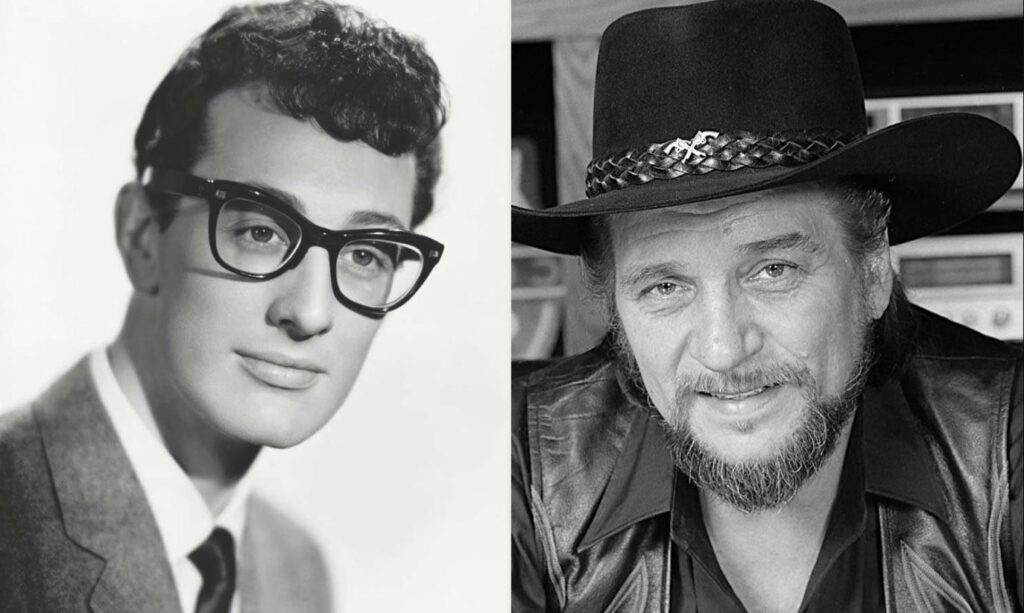
February 3, 1959, is etched in the annals of music history as “The Day the Music Died,” a day when the world lost three musical icons—Buddy Holly, Ritchie Valens, and J.P. “The Big Bopper” Richardson—in a tragic plane crash near Clear Lake, Iowa. However, one musician narrowly escaped this fate: Waylon Jennings, who was slated to be on that ill-fated flight but gave up his seat, a decision that would haunt him for the rest of his life.
The Winter Dance Party Tour: A Grueling Journey
In the winter of 1959, Buddy Holly embarked on the “Winter Dance Party” tour across the Midwest, a grueling schedule that took its toll on the performers. The musicians endured freezing temperatures, frequent bus breakdowns, and bouts of illness. Waylon Jennings, then a young bassist, was part of Holly’s band, The Crickets, and was traveling alongside Holly, Valens, and Richardson.
The Fateful Decision: A Seat Exchange
As the tour progressed, the conditions became unbearable. J.P. Richardson, suffering from the flu, asked Jennings if he could take his place on the plane that was chartered to fly to the next venue. Jennings agreed, and when Holly learned of the change, he jokingly remarked, “Well, I hope your ol’ plane crashes.” Jennings, attempting to keep the mood light, responded in kind, “Well, I hope your ol’ bus freezes up.” Tragically, the plane did crash shortly after takeoff, killing Holly, Richardson, and Valens People.com+1.
The Aftermath: Guilt and Reflection
The loss of his friends weighed heavily on Jennings. He later expressed deep regret over his flippant remark, feeling responsible for the tragedy. This guilt haunted him throughout his life and career. In interviews, Jennings admitted that he had never fully forgiven himself for his words, despite the fact that they were made in jest.
A Tribute Through Music
In the years following the crash, Jennings channeled his grief into his music. He wrote and performed songs that reflected his sorrow and the impact of the loss on his life. One such song, “The Day the Music Died,” was a tribute to his fallen friends and a reflection on the fleeting nature of life and fame American Songwriter.
The Legacy of “The Day the Music Died”
The tragic events of February 3, 1959, left an indelible mark on the music industry. Don McLean immortalized the day in his 1971 hit song “American Pie,” referring to it as “the day the music died.” The crash not only ended the lives of three promising artists but also marked a turning point in the music scene, leading to changes in touring practices and safety regulations.
Remembering the Fallen
Buddy Holly, Ritchie Valens, and J.P. Richardson are remembered not just for their music but for the legacy they left behind. Their contributions to rock and roll continue to influence artists today. Memorials and tributes to the trio are held annually, ensuring that their memory lives on in the hearts of music lovers worldwide.
Conclusion
The story of Waylon Jennings’ narrow escape from the plane crash that claimed the lives of his friends is a poignant reminder of the fragility of life and the bonds formed through music. While Jennings carried the weight of guilt for his ill-timed joke, it is clear that his decision to give up his seat was an act of kindness and selflessness. His legacy, like that of Holly, Valens, and Richardson, endures through the music they created and the stories they left behind.